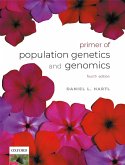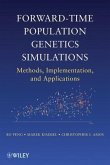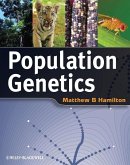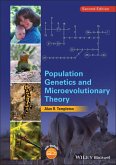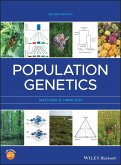Population genetics is an inherently quantitative discipline, yet often focuses upon abstract concepts which can be difficult to conceptualize and appropriately visualize at first glance. This book focuses on applying the hugely popular R software specifically to the field, offering an accessible, step-by-step guide to tackling the challenges of achieving effective data interpretation and summary. The authors adopt an engaging "learning by doing" approach that will enable readers to develop an intuitive understanding of key population genetics concepts through the use of R. Beginning with the groundwork of installing and using R (including CRAN and the RStudio IDE), the book works through the use of basic commands for data manipulation. An introduction to basic terminology in population genetics follows, clearly explaining how these fundamental assumptions can provide insights and form basic inferences for real populations. The focus then moves onto statistical tests including writing and running algorithms as functions. Subsequent chapters examine genetic variation, adaptation, and natural selection as well as different approaches to population differences. Importantly, the accompanying set of practical exercises demonstrate that implementing all of these concepts via programming can actually help greatly in understanding them, even if they may at first seem insurmountably complex. Finally, this accessible textbook points the way forwards to other key concepts that are important to understanding modern day population genetics research (in particular coalescent theory) and offers the reader useful launching points for further learning. Population Genetics with R is aimed at students ranging from undergraduate to postgraduate level in the fields of population genetics, ecology, evolutionary biology, conservation genetics, computational biology, and biostatistics.
Dieser Download kann aus rechtlichen Gründen nur mit Rechnungsadresse in A, B, BG, CY, CZ, D, DK, EW, E, FIN, F, GR, HR, H, IRL, I, LT, L, LR, M, NL, PL, P, R, S, SLO, SK ausgeliefert werden.



